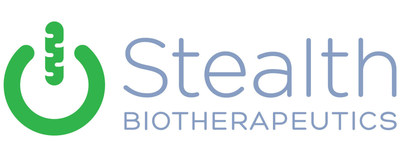Stealth BioTherapeutics Granted Pre-NDA Meeting for Elamipretide as a Potential Treatment for Barth Syndrome
Stealth BioTherapeutics (MITO) has scheduled a Type B meeting with the FDA's Division of Cardiology and Nephrology to discuss new clinical data concerning elamipretide for treating Barth Syndrome. This meeting follows the FDA's previous refusal to file an NDA for the treatment in October 2021. The company aims to present clinical data from the Phase 2 TAZPOWER study, which could support a future NDA submission. Barth Syndrome is a rare genetic condition with no FDA-approved therapies, affecting 1 in 200,000 to 400,000 individuals worldwide.
- Scheduled a Type B pre-NDA meeting with the FDA to discuss new clinical data.
- New data from the Phase 2 TAZPOWER study could support an NDA submission for elamipretide.
- FDA previously refused to file the NDA for Barth Syndrome treatment in October 2021.
Insights
Analyzing...
Type B meeting scheduled with FDA Division of Cardiology and Nephrology
Company plans to discuss new clinical data that may inform a potential NDA submission
BOSTON, June 14, 2022 /PRNewswire/ -- Stealth BioTherapeutics Corp (Nasdaq: MITO), a clinical-stage biotechnology company focused on the discovery, development and commercialization of novel therapies for diseases involving mitochondrial dysfunction, today announced its plan to meet with the U.S. Food & Drug Administration (FDA) Division of Cardiology and Nephrology (DCN) to discuss new clinical data that may inform a potential new drug application (NDA) submission for the treatment of Barth Syndrome.
In October 2021, the FDA refused to file the Company's NDA for the treatment of Barth Syndrome. The Company recently requested a Type B pre-NDA meeting to discuss new clinical data on patients treated with elamipretide for over 3.5 years in the open-label extension period of the Phase 2 TAZPOWER study. The Company believes that the new data may support an NDA filing and approval of elamipretide as a treatment for Barth Syndrome. The FDA has granted the meeting request and the Company expects this meeting to occur during the third quarter.
"We welcome the opportunity to meet with FDA to discuss our promising new clinical data and a potential NDA submission," said Reenie McCarthy, Chief Executive Officer of Stealth BioTherapeutics. "We look forward to working with the Agency toward our goal of securing the regulatory review and approval necessary to make elamipretide available to patients with Barth Syndrome. We are eager to present our new clinical data at an upcoming scientific meeting."
About Barth Syndrome
Barth Syndrome is an ultra-rare genetic condition characterized by cardiac abnormalities often leading to heart failure and reduced life expectancy, recurrent infections, muscle weakness and delayed growth. Barth Syndrome occurs almost exclusively in males and is estimated to affect one in 200,000 to 400,000 individuals worldwide. There are currently no FDA- or EMA-approved therapies for patients with Barth Syndrome. Elamipretide has Orphan Drug, Fast Track and Rare Pediatric Designation from the FDA and Orphan Drug Designation from the EMA for the treatment of Barth Syndrome.
About Stealth BioTherapeutics
We are a clinical-stage biotechnology company focused on the discovery, development, and commercialization of novel therapies for diseases involving mitochondrial dysfunction. Mitochondria, found in nearly every cell in the body, are the body's main source of energy production and are critical for normal organ function. Dysfunctional mitochondria characterize a number of rare genetic diseases and are involved in many common age-related diseases, typically involving organ systems with high energy demands such as the heart, the eye, and the brain. We believe our lead product candidate, elamipretide, has the potential to treat rare diseases including primary mitochondrial myopathy due to nuclear DNA mutations, rare cardiomyopathies such as Barth Syndrome, Duchenne muscular dystrophy and Friedreich's ataxia, as well as ophthalmic diseases entailing mitochondrial dysfunction, such as dry age-related macular degeneration. We are evaluating our second-generation clinical-stage candidate, SBT-272, and our new series of small molecules, SBT-550, for rare neurological disease indications following promising preclinical data. We have optimized our discovery platform to identify novel mitochondria-targeted compounds which may be nominated as therapeutic product candidates or utilized as mitochondria-targeted vectors to deliver other compounds to mitochondria.
Forward-looking Statements
This press release contains forward-looking statements within the meaning of The Private Securities Litigation Reform Act of 1995. Such forward-looking statements include those regarding Stealth BioTherapeutics' plans, strategies and expectations for its clinical advancement of its drug development programs, including its plans for the potential submission of an NDA and the potential benefits of Stealth BioTherapeutics' product candidates. Statements that are not historical facts, including statements about Stealth BioTherapeutics' beliefs, plans and expectations, are forward-looking statements. The words "anticipate," "expect," "hope," "plan," "potential," "possible," "will," "believe," "estimate," "intend," "may," "predict," "project," "would" and similar expressions are intended to identify forward-looking statements, although not all forward-looking statements contain these identifying words. Stealth BioTherapeutics may not actually achieve the plans, intentions or expectations disclosed in these forward-looking statements, and you should not place undue reliance on these forward-looking statements. Actual results or events could differ materially from the plans, intentions and expectations disclosed in the forward-looking statements as a result of known and unknown risks, uncertainties and other important factors, including: Stealth BioTherapeutics' ability to obtain additional funding and to continue as a going concern; the impact of the COVID-19 pandemic; the ability to successfully demonstrate the efficacy and safety of Stealth BioTherapeutics' product candidates and future product candidates; the preclinical and clinical results for Stealth BioTherapeutics' product candidates, which may not support further development and marketing approval; the potential advantages of Stealth BioTherapeutics' product candidates; the content and timing of decisions made by the U.S. FDA, the EMA or other regulatory authorities, investigational review boards at clinical trial sites and publication review bodies, which may affect the initiation, timing and progress of preclinical studies and clinical trials of Stealth BioTherapeutics product candidates; Stealth BioTherapeutics' ability to obtain and maintain requisite regulatory approvals and to enroll patients in its planned clinical trials; unplanned cash requirements and expenditures; competitive factors; Stealth BioTherapeutics' ability to obtain, maintain and enforce patent and other intellectual property protection for any product candidates it is developing; and general economic and market conditions. These and other risks are described in greater detail under the caption "Risk Factors" included in Stealth BioTherapeutics' most recent Annual Report on Form 20-F filed with the Securities and Exchange Commission ("SEC"), as well as in any future filings with the SEC. Forward-looking statements represent management's current expectations and are inherently uncertain. Except as required by law, Stealth BioTherapeutics does not undertake any obligation to update forward-looking statements made by us to reflect subsequent events or circumstances.
Investor Relations
Kendall Investor Relations
Adam Bero, Ph.D.
abero@kendallir.com
![]() View original content to download multimedia:https://www.prnewswire.com/news-releases/stealth-biotherapeutics-granted-pre-nda-meeting-for-elamipretide-as-a-potential-treatment-for-barth-syndrome-301567041.html
View original content to download multimedia:https://www.prnewswire.com/news-releases/stealth-biotherapeutics-granted-pre-nda-meeting-for-elamipretide-as-a-potential-treatment-for-barth-syndrome-301567041.html
SOURCE Stealth BioTherapeutics Inc.








